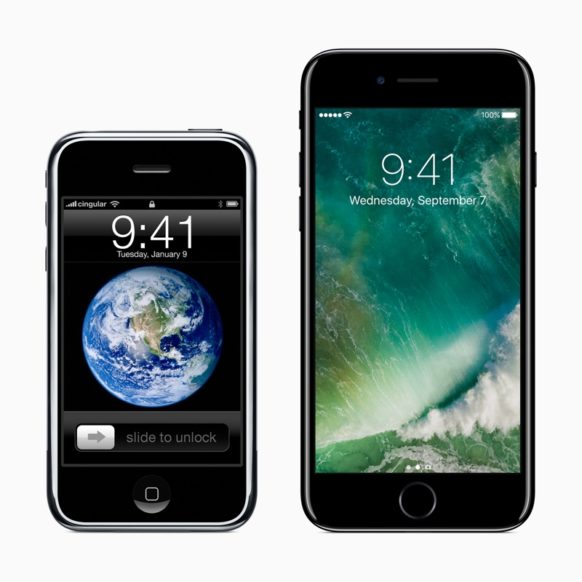Apple SVP of Worldwide Marketing Phil Schiller sat down with Backchannel editor Steve Levy and discussed the 10th anniversary of the iPhone.

Levy asked him if Apple had an inkling of how big the iPhone would be.
“Yes, but not nearly on the scale it’s become,” he says. “We knew we were working on something important that was big to Apple, and that the world was changing around these things in the future. But we didn’t know how big it would be, and we didn’t know how many things would come from it.
Schiller shed a bit of light on why the iPhone debuted as a closed system, as opposed to the open, App Store-centric system it soon became. Schiller says there was a spirited debate between two camps inside the firm. Once camp wanted an open system, like the Macintosh. The other side argued for a closed system, like the iPod. The late Steve Jobs shut down the argument, when it became apparent time was running short.
Schiller recalls. “He said ‘We don’t have to keep debating this because we can’t have [an open system] right now. Maybe we’ll change our mind afterwards, or maybe we won’t, but for now there isn’t one so let’s envision this world where we solve the problem with great built-in apps and a way for developers to make web apps.”
Schiller also responded to critics who say recent iterations of the iPhone are evolutionary, not revolutionary like earlier models.
“I actually think the leaps in the later versions are as big and sometimes even bigger now,” he says. “I think our expectations are changing more, not the leaps in the products. If you look through every version—from the original iPhone to the iPhone 3G to the 4 to the 4S, you see great changes all throughout. You see screen size change from three and a half inch to four inch to four point seven and five point five. You see cameras going through incredible change, from the first camera that couldn’t shoot video, to then having both a front and a backside camera, to now three cameras with the stuff we’re doing, and with live photos and 4K video.”
When queried about personal assistants, such as Amazon’s Alexa, and it’s recent “Alexa everywhere” push, Schiller stressed the convenience of having the assistant in your pocket, and yes, the display is still important.
“… I think we do more with that conversational interface that anyone else. Personally, I still think the best intelligent assistant is the one that’s with you all the time. Having my iPhone with me as the thing I speak to is better than something stuck in my kitchen or on a wall somewhere.”
Well, I reply, Amazon sees its Alexa voice interface not as something pinned to one device, but a ubiquitous and persistent cloud-based product that can listen to you anywhere.
“People are forgetting the value and importance of the display,” he says “Some of the greatest innovations on iPhone over the last ten years have been in display. Displays are not going to go away. We still like to take pictures and we need to look at them, and a disembodied voice is not going to show me what the picture is.”
The Phil Schiller interview is recommended reading and can be perused in full at the Backchannel website.


